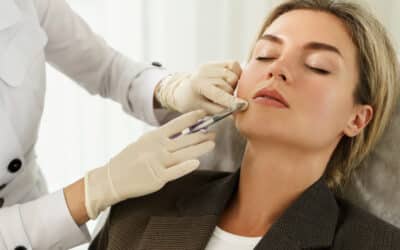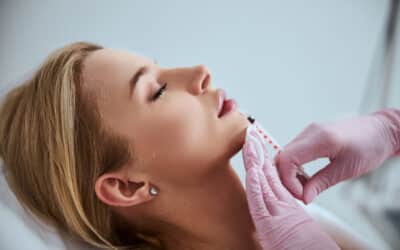Bio-identical hormone replacement therapy (BHRT) is a great tool for restoring your vitality, along with your hormone levels. With older age comes a sharp decline in hormone levels, unfortunately causing a range of uncomfortable symptoms, such as fatigue, low mood, and weight gain. These symptoms are commonly seen as an inevitable consequence of aging, however, with BHRT on your side, you have the freedom live strong again.
Typically, these changes occur in the late 40s through to the early 60s. Although there is no way to tell at what age you should start BHRT without proper lab testing, there are signs of hormonal imbalance you can watch out for along with risk factors.
Risk Factors
There are risk factors that can further increase your chances of developing hormone imbalances. It is important to note that BHRT is best combined with healthy habits and practices and is not meant to be a replacement for living a healthy lifestyle.
- Above the age of 40
- Menopause
- Obesity
- Poor diet
- Family History
Signs of hormonal imbalance
Hormonal imbalances can sometimes develop at an earlier age, making it important to be aware of the symptoms and signs to watch out for. These symptoms are often misdiagnosed and when treated with traditional drugs and medication, unwanted side effects can further worsen your condition.
- Fatigue
- Unexplained weight gain
- Low sex drive
- Mood swings
When does menopause start?
Menopause typically occurs between ages 45 and 55 for most women. However, the transition to menopause, perimenopause, begins years earlier. Although less common, women can experience this as early as their 30s.
Menopausal symptoms such as hot flashes and sexual dysfunction may begin to set in, lowering the quality of life for a woman. BHRT for women is an effective treatment at easing these symptoms as you are transitioning and settling into the next stage of your life.
It is important for menopausal women to undergo treatment to prevent loss of bone density, avoiding the development of osteoporosis.
Symptoms of menopause
There are a range of symptoms that occur in women who are experiencing menopause. These menopausal symptoms can often be uncomfortable and disruptive, affecting the quality of life for many women. Menopausal symptoms include:
- Hot Flashes
- Night sweats
- Vaginal dryness
- Depression
- Sexual Dysfunction
- Weight Gain
- Bone Loss
Andropause
Andropause, sometimes referred to as the male equivalent of menopause, occurs when there is a sharp drop in testosterone levels and usually happens in older men around the age of 50. Menopause is similar to andropause in that the first signs and symptoms can appear much earlier than they would for women who haven’t gone through menopause yet.
Symptoms of andropause
There are symptoms of hormonal imbalance that are more prominent in men who are experiencing andropause, than their menopausal counterpart. Although every woman will experience menopause, andropause does not always occur in every man. At this stage, hormone levels are reaching low enough to cause a more severe set of symptoms, making BHRT a vital treatment for many.
- Erectile dysfunction
- Low sex drive
- Muscle loss
- Gynecomastia
- Weight gain
- Brain fog
Testing and diagnosis
If you are in a risk factor group and are experiencing symptoms, seeking treatment is important to ensure your overall health and well-being, as well as restoring comfort in your life.
Before undergoing bio-identical hormone replacement therapy (BHRT), testing will be carried out to measure your hormone levels. This testing confirms that the treatment is appropriate for you, as well as the effective dose of hormones.
Bioidentical hormones compared to traditional hormone replacement therapy
Bioidentical hormone replacement therapy (BHRT) with pellets differs from conventional hormone therapy by offering an individualized approach to treatment. Because the plant-based hormones used are chemically identical to the ones naturally produced in the body, we can replicate the function of those lost hormones, alleviating the symptoms of hormone imbalance




